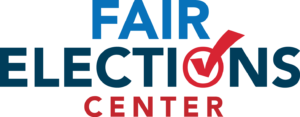
The Florida Supreme Court has ruled that the term “all terms of sentence” in Amendment 4 includes fines, restitution, court costs, and fees. It declined to adopt the position advocated by Fair Elections Center, which argued that cost and fees should not be considered part of a criminal sentence because they are not punishment.
In November 2018, Florida voters overwhelmingly voted to adopt Amendment 4, which provides that residents with felony convictions—excluding those convicted of murder or sexual offenses—will have their voting rights restored “upon completion of all terms of sentence including parole or probation.” In July 2019, the Florida Legislature enacted legislation requiring the payment of all legal debts before returning citizens can regain their voting rights. After several civil rights groups sued the state in federal court, Gov. DeSantis asked the state supreme court to answer whether the term “all terms of sentence” in the Amendment’s language includes fines, restitution, court costs, and fees. Fair Elections Center filed an interested party brief stating that voters would not have understood this language as requiring the payment of costs and fees, which are used by Florida courts to fund court operations—not for punishment.
We respectfully disagree with the Court’s opinion. Voters could not have understood the phrase “all terms of sentence including parole or probation” as including costs and fees. Florida citizens with felony convictions residing in Miami-Dade, Broward, Palm Beach, and Hillsborough Counties who cannot afford to pay their legal debts may qualify for modification programs that can help them become eligible to vote. More information is available on the Florida Rights Restoration Coalition’s website.
Fair Elections Center is a national, nonpartisan voting rights and election reform organization which works to remove barriers to registration and voting for traditionally underrepresented constituencies. The Center works to improve election administration through legislative, legal and administrative reform, to protect access to the ballot through litigation, and to provide election law expertise, voter information and technical assistance to voter mobilization organizations.
